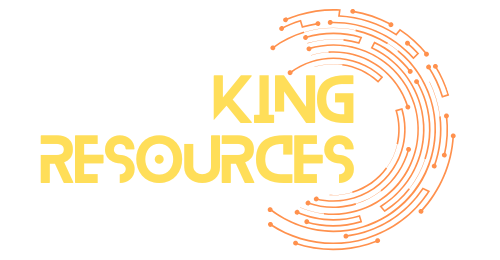Deciding whether to buy a home or continue renting can feel like choosing between a cozy blanket and a high-tech heating system—both have their perks, but which one warms your heart? In today’s market, where prices soar and interest rates dance like a toddler on caffeine, many people are left scratching their heads. Should they dive into the world of homeownership or keep tossing their hard-earned cash into the rental abyss?
Table of Contents
ToggleUnderstanding the Real Estate Market
Understanding the real estate market helps buyers and renters make informed decisions. Evaluating recent trends can clarify factors influencing the housing dilemma.
Current Trends in Home Buying
Home buying trends indicate a significant rise in prices across many regions. According to the National Association of Realtors, the median home price reached $400,000 in 2023, up by 15% from the previous year. Interest rates fluctuate, currently averaging around 7.5% for a 30-year mortgage. Many buyers prioritize properties in urban areas due to improved job opportunities. Buyers increasingly seek homes with energy-efficient features, reflecting growing environmental concerns. These dynamics play a crucial role in assessing whether to wait or buy.
Renting Landscape Overview
The renting market has shifted, highlighting competitiveness in various cities. Average rental prices have climbed to $2,000 a month, with a 20% increase since last year, making affordability a concern for many. Vacancy rates dropped to 5%, indicating higher demand. Many renters prefer flexible lease terms, enhancing lifestyle adaptability. Renters also show interest in amenities such as gyms and co-working spaces, accommodating remote work trends. Moving forward, these factors shape the rental market, influencing individuals’ decisions on continuing to rent or transitioning to homeownership.
Pros of Buying a Home
Buying a home offers several benefits that can outweigh renting.
Building Equity
Purchasing a home allows individuals to build equity over time. Every mortgage payment contributes to ownership, unlike rent payments that primarily benefit landlords. In 2023, with median home prices at $400,000, the potential for equity growth can be substantial. Homeowners benefit from appreciating property values, especially in urban areas where demand is high. Additionally, as property values increase, homeowners enhance their financial stability, providing a potential return on investment.
Stability and Control
Homeownership provides stability and control that renting doesn’t. Homeowners enjoy the ability to make modifications, ensuring their living space reflects their preferences. Fixed-rate mortgages offer predictable monthly payments, shielding owners from market fluctuations. With rental prices rising to an average of $2,000 a month, owning a home can lead to a more stable housing environment. Furthermore, long-term ownership fosters community ties and personal investment in the neighborhood.
Cons of Buying a Home
While buying a home appears attractive, several drawbacks warrant consideration.
Financial Commitment
Significant financial commitment accompanies homeownership. A down payment of at least 3% to 20% is often required, impacting cash flow upfront. Monthly mortgage payments remain critical, alongside property taxes, insurance, and maintenance costs that may increase over time. Unexpected expenses can arise, such as repairs or renovations, demanding additional financial resources. In 2023, median home prices reached $400,000, with rising interest rates averaging around 7.5% on a 30-year mortgage. Therefore, potential buyers must evaluate their financial stability and readiness to handle these ongoing obligations before making a purchase.
Market Risk
Market risk poses another challenge for homebuyers. Real estate values can fluctuate, and home prices in urban areas surged by 15% this past year, potentially leading to future declines. Local market trends can change based on economic factors, impacting resale value when the homeowner decides to sell. With increasing competition among buyers, affecting property availability in desirable neighborhoods, individuals may face challenges securing a home that retains value. Rental prices also increased by 20% recently, demonstrating the volatility in housing markets. Recognizing these risks is essential when deciding to enter the market.
Pros of Renting
Renting offers distinct advantages that make it an appealing option for many individuals.
Flexibility and Mobility
Renters enjoy increased flexibility, making it easier to relocate for job opportunities or personal reasons. Short-term leases and month-to-month options provide options that align with changing circumstances. Moreover, those living in urban areas can quickly adapt to new neighborhood trends without the commitment of purchasing a home. In a market where median home prices are around $400,000 with rising costs, many opt for rentals to avoid long-term financial obligations. This freedom to move without extensive planning adds to the allure of renting.
Lower Upfront Costs
Renting requires less financial outlay compared to buying a home. Typically, renters face minimal upfront expenses, often limited to a security deposit and the first month’s rent. In contrast, purchasing a home often demands a down payment that can amount to thousands of dollars, alongside various closing costs. With average rental prices rising to $2,000 per month, individuals can maintain some financial liquidity while benefiting from housing. This lower barrier to entry enables many to manage their finances better without the added pressure of homeownership-related expenses.
Cons of Renting
Renting comes with several disadvantages that affect long-term financial stability and flexibility. Understanding these cons aids individuals in making informed housing decisions.
No Equity Growth
Rent payments contribute to landlords’ profits, offering no long-term financial return for renters. Each month, they pay an average of $2,000, translating to $24,000 annually with nothing to show for it in terms of ownership. Property values are continually rising, and renters miss out on the equity growth of appreciating homes. Homeowners can build significant wealth through equity, especially in markets with increasing prices, like the current median home price of $400,000. Ultimately, renting leaves individuals without an asset that can appreciate over time.
Potential Rent Increases
Renters face the risk of sudden rent increases, making long-term financial planning challenging. With an average increase of 20% in the past year, many renters feel pressured as landlords adjust prices to match market trends. Each lease renewal might bring higher costs, reducing budget stability. Some rental agreements include clauses that permit increases, creating uncertainty for tenants. Planning for future expenses becomes complicated in such an unpredictable environment, leaving renters vulnerable to financial strain.
Deciding whether to buy or continue renting isn’t straightforward. Each option presents unique advantages and challenges that can significantly impact financial stability and lifestyle. Buyers need to weigh the long-term benefits of equity and stability against the immediate costs and market risks.
On the other hand, renters enjoy flexibility and lower upfront costs but miss out on building wealth through property ownership. Ultimately, individuals must assess their personal financial situation and long-term goals to make an informed choice. With careful consideration of the current market dynamics and their unique circumstances, they can navigate this critical decision with confidence.









